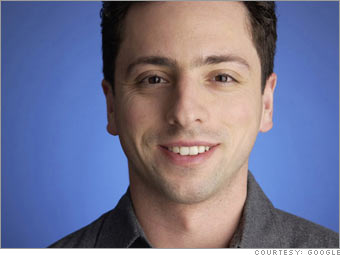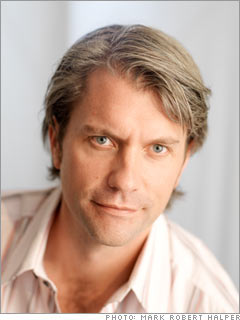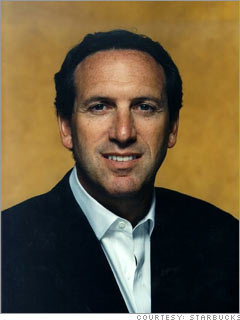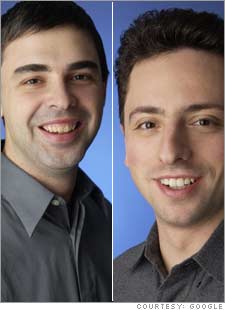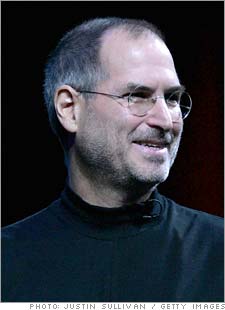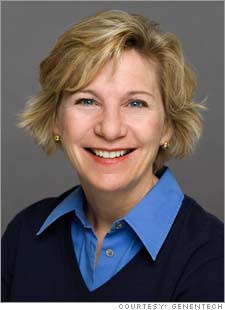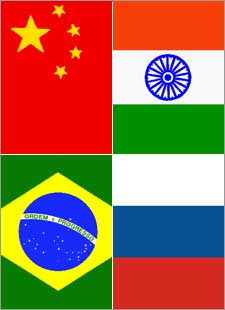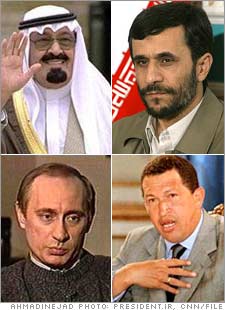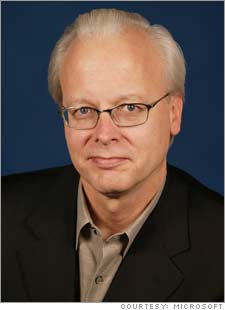Nothing beats being young and rich. Here are the world's 10 youngest billionaires. They include a former Enron oil trader, a German prince and China's richest woman. The youngest of all is 23-year-old Facebook founder Mark Zuckerberg, who is quite possibly the world's youngest self-made billionaire ever.
 John Arnold, U.S.
John Arnold, U.S.
Age 34, $1.5 billion, self-made
Source: hedge funds
Residence: Houston, Texas , United States, North America
Industry: Investments
Education: Vanderbilt University, Bachelor of Arts / Science
Raised by a lawyer dad and accountant mom, Arnold whizzed through Vanderbilt University in three years. He became an oil trader for Enron, supposedly earning $750 million for the company in 2001, when he was just 27. He went into business for himself after Enron collapsed a year later. Today he runs hedge fund Centaurus Energy.
 Xiaofeng Peng, ChinaAge
Xiaofeng Peng, ChinaAge 33 , $2.5 billion, self-made
Source: solar energy
Residence: Xinyu , China, Asia & Australia
Industry: Energy
Education: Jiangxi Foreign Trade School, Diploma
Beijing University, Master of Business Administration
It's easy being green for Peng. The relative youngster got into solar energy only in 2005. Two years later, he took his company, LDK Solar, which makes silicon wafers used in solar panels, public on NYSE Euronext.
Started out with a trading company that blossomed into a family-run company that made safety products such as gloves and employed 12,000. He considered adding Chinese-made solar panels to his export wares when he realized that no Chinese company was producing wafers, a key component for solar cells that makes up 25% of their cost. In 2005 Peng began pouring $30 million of his own money and $80 million of venture financing into building factories in his native Jiangxi Province. Now nicknamed Light, this solar energy newcomer took his solar energy company, LDK Solar, onto Nasdaq in 2007. Has been a turbulent ride; dropped in October after an accounting officer who quit firm publicly alleged that LDK inflated inventory figures of a key raw material, polysilicon; The company and Peng have denied the allegations. Stock recovered but then dropped again.
 Shivinder Singh, IndiaAge
Shivinder Singh, IndiaAge: 32, $2.5 billion, inherited
Residence: Dehli , India, Asia & Australia
Industry: Pharmaceuticals
Singh and his older brother Malvinder, 35, both Duke University grads, inherited control of generic drug maker Ranbaxy Laboratories. We list the duo as sharing a $2.5 billion fortune because they won't break out the ownership details for us. What we know: Malvinder heads Ranbaxy, while Shivinder runs hospital chain Fortis Healthcare, which went public in 2007.
 Begumhan Dogan Faralyali, TurkeyAge
Begumhan Dogan Faralyali, TurkeyAge: 31, $1 billion, inherited
Residence: Istanbul , Turkey, Middle East & Africa
Industry: Media/Entertainment
Education: London School of Economics, Bachelor of Arts / Science Stanford University, Master of Business Administration
A daughter of billionaires, Dogan Faralyali began her career as an Arthur Andersen consultant in New York and later advised Europe's leading media and technology companies. She joined the family media business in Turkey by establishing the corporate communications department of Dogan Holding and became its president.
 Aymin Hariri, Saudi ArabiaAge
Aymin Hariri, Saudi ArabiaAge 29 , $2.3 billion, inherited
Residence: Riyadh , Saudi Arabia, Middle East & Africa
Industry: Technology
Education: Georgetown University, Bachelor of Arts / Science
The son of slain Lebanese Prime Minister Rafik Hariri, Aymin is now based in Riyadh and helps watch over family construction and investment company Saudi Oger for older brother Saad, the Lebanese parliamentary majority leader. Plus, he has hands in U.S. government contracting: co-founded and chairs identity management software company Epok, based outside Washington, D.C., which sells to federal and state customers.
 Fahd Hariri, LebanonAge
Fahd Hariri, LebanonAge 27 , $2.3 billion, inherited
Residence: Paris , France, Europe & Russia
Industry: Diversified
Aymin's younger brother, Fahd, serves on board of Beirut's Future Television Network, a terrestrial and satellite TV network. He also runs a fledgling design studio for furniture and other wares in Paris, where sister Hind, also a billionaire, and mother live.
 Yang Huiyan, ChinaAge
Yang Huiyan, ChinaAge 26, $7.4 billion, inherited
Residence: Shunde , China, Asia & Australia
Industry: Real Estate
Education: Ohio State University, Bachelor of Arts / Science
China's richest person is also one of the world's youngest billionaires and a daddy's girl. Yang earned her degree from Ohio State University in 2005, the same year her father, Yeung Kwok Keung, the media-shy chief of real estate outfit Country Garden, transferred his stake in the company to her (not a bad graduation gift). Gold-diggers, beware: She's already married; her wedding video is posted on YouTube.
 Albert von Thurn und Taxis, GermanyAge
Albert von Thurn und Taxis, GermanyAge: 24 , $2.3 billion, inherited
Net Worth: $2.3 bil
Residence: Regensburg , Germany, Europe & Russia
Industry: Diversified
The German prince appeared briefly on our billionaires list at age 8, but he officially inherited his fortune on his 18th birthday. Lives in a family castle with his mother and older sister. Race car driver, tours with an Italian auto-racing league.
 Hind Hariri, LebanonAge
Hind Hariri, LebanonAge 24, $1.1 billion, inherited
Residence: Beirut , Lebanon, Middle East & Africa
Industry: Diversified
Youngest child of slain Lebanese Prime Minister Rafik Hariri (see brothers Bahaa, Saad, Fahd and Ayman) inherited stake in family's construction, banking and media holdings. Graduated in 2006 from the Lebanese American University in Beirut. Sticks close by mother Nazek in Paris, where she attracted attention during recent fashion shows. Confessed to fashion rag Women's Wear Daily: "Couture is for when I am representing my family. I'm more into pret-a-porter." At 24, one of the world's youngest billionaires.
 Mark Zuckerberg, U.S.Age
Mark Zuckerberg, U.S.Age 23, $1.5 billion, self-made
Source: Facebook
Residence: Palo Alto, California , United States, North America
Industry: Technology
Education: Harvard University, Drop Out
Tech's newest golden boy founded addictive social networking site Facebook in February 2004 from his Harvard dorm room. Left school for Silicon Valley later that year; scored initial $500,000 investment from PayPal cofounder Peter Thiel. Venture firms soon swooned, among them Accel Partners and Greylock Partners. Today Facebook boasts 66 million active users. Estimated annual sales: $150 million. Expanding beyond being a college-only message system and photo album; now courting users to 55,000 different high school, business and city networks. Problems with privacy: installed "News Feed" in 2006; program automatically alerted users' friends to changes they made to their profiles. Outcry over privacy concerns led company to backpedal; Zuckerberg issued apology. Similar controversy ensued after release of Facebook Beacon late last year; program automatically alerted friends of activities on selected outside sites, including eBay and Fandango. Microsoft bought 1.6% stake for $240 million last October; deal led many to suggest the company is worth $15 billion. Some analysts—and even a few Facebook investors—suggest the company's value is far lower.
http://www.forbes.com/2008/03/05/youngest-billionaires-rich-billionaires08-cx_lk_0305youngest_slide.html?partner=links






 John Arnold, U.S.
John Arnold, U.S. Xiaofeng Peng, China
Xiaofeng Peng, China Shivinder Singh, India
Shivinder Singh, India Begumhan Dogan Faralyali, Turkey
Begumhan Dogan Faralyali, Turkey Aymin Hariri, Saudi Arabia
Aymin Hariri, Saudi Arabia Fahd Hariri, Lebanon
Fahd Hariri, Lebanon Yang Huiyan, China
Yang Huiyan, China Albert von Thurn und Taxis, Germany
Albert von Thurn und Taxis, Germany Hind Hariri, Lebanon
Hind Hariri, Lebanon Mark Zuckerberg, U.S.
Mark Zuckerberg, U.S.











